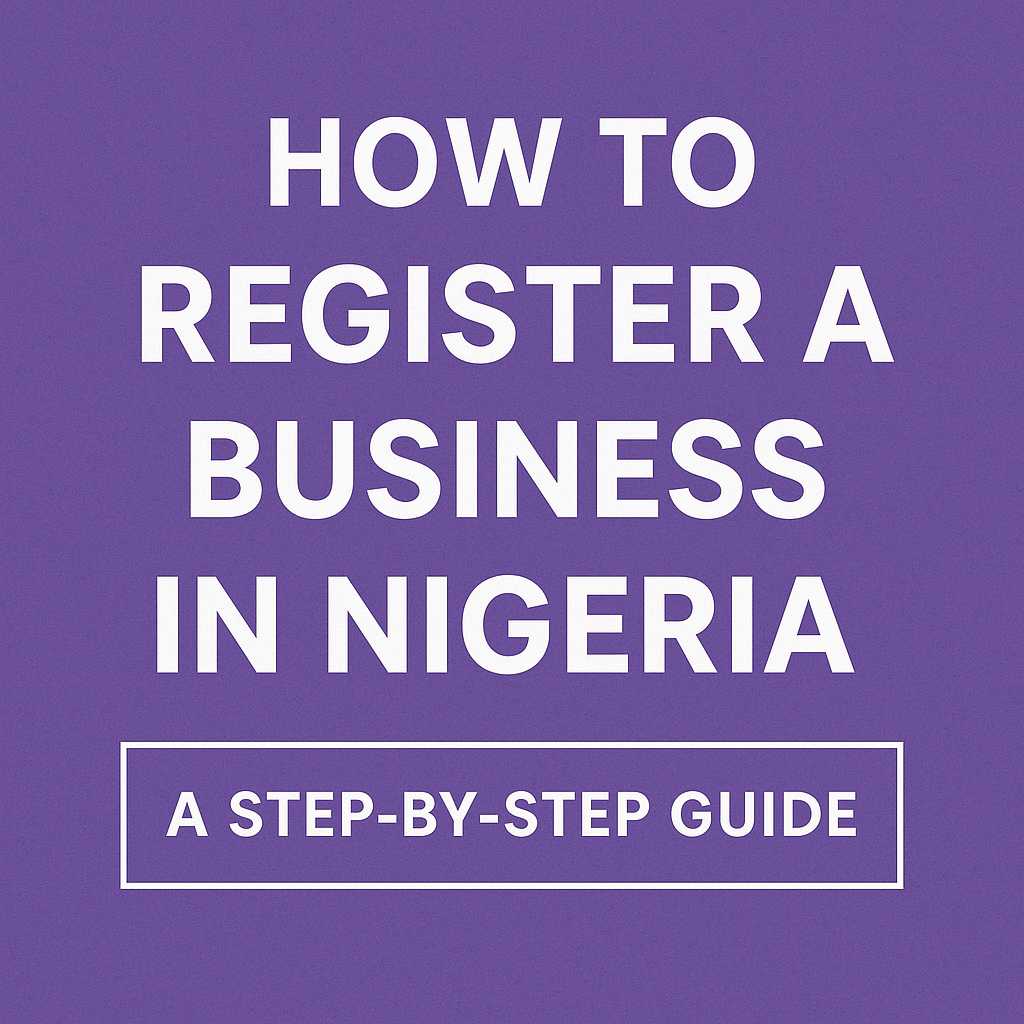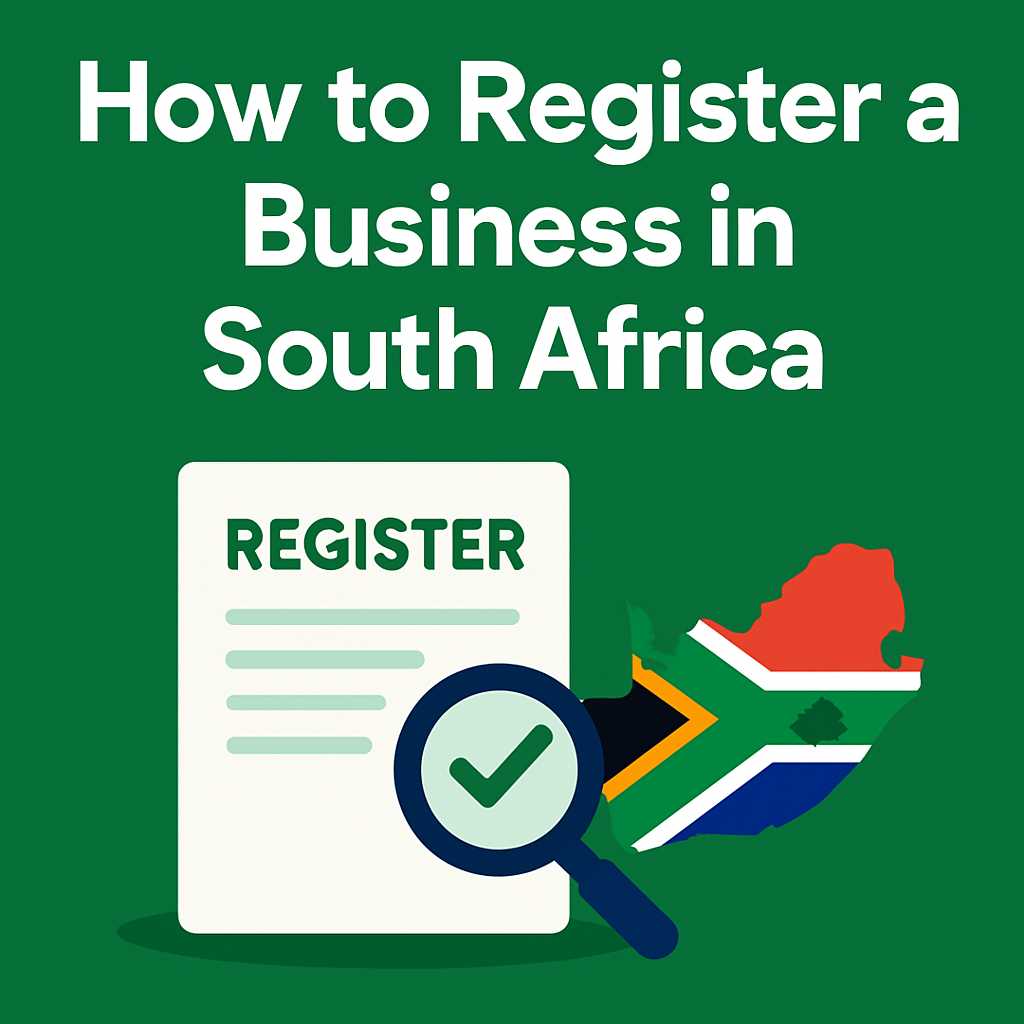
How to Register a Business in South Africa: A Complete Guide
Tapiwa Simon Gondo
Share this blog

Starting a business in South Africa is a bold and rewarding step. Whether you’re launching a startup, small business, or a non-profit organization, registering your business gives it legal recognition and opens up many opportunities. The Companies and Intellectual Property Commission (CIPC) is responsible for business registration in South Africa, and thanks to digitization, the process is now faster and more accessible than ever.
In this article, we’ll walk you through the step-by-step process to register your business in South Africa.
Why Register Your Business?
Registering your business is essential for:
- Legal compliance and protection
- Securing contracts with clients or the government
- Opening a business bank account
- Accessing funding, grants, or tenders
- Protecting your brand name
Types of Business Entities in South Africa
Before you register, it’s important to choose the right legal structure. The main types include:
- Private Company (Pty) Ltd
Most common structure for startups and SMEs. Offers limited liability to owners. - Sole Proprietor
Informal and simpler, but the owner is personally liable for debts. - Public Company (Ltd)
Typically for large businesses listed on the stock exchange. - Non-Profit Company (NPC)
Suitable for charities, NGOs, and social enterprises. - Co-operatives
Owned and run by a group of people for mutual benefit.
Steps to Register Your Business in South Africa
Step 1: Register with the CIPC
You can register a business directly through the CIPC online portal:
Create an account:
First, you’ll need to create a profile on the CIPC website and verify your identity using your South African ID or passport (for foreigners).
Name Reservation (Optional):
You can either register with a trading name or apply to reserve a business name (R50 fee). The name should be unique and comply with CIPC’s naming guidelines.
Step 2: Choose Your Business Type
Select your desired business structure (e.g., Private Company, NPC). For most entrepreneurs, registering a Private Company (Pty) Ltd is ideal.
Step 3: Provide Company Details
Fill in the required information, such as:
- Company name
- Business address
- Number of directors
- ID documents or passport copies of directors
- Company objectives (what your business will do)
Step 4: Pay Registration Fees
The standard company registration fee is around R125 (plus R50 if you reserved a name). Payments can be made via CIPC-approved channels like EFT or online payment options.
Step 5: Download Your Registration Documents
Once your registration is approved, CIPC will issue:
- Company Registration Certificate (COR14.3)
- Notice of Incorporation
- Memorandum of Incorporation (MOI)
These documents will be available in your CIPC dashboard and can be used to open a bank account or apply for a tax number.
Step 6: Register with SARS for Tax
After incorporation, you must register with the South African Revenue Service (SARS) to obtain a Tax Reference Number. In many cases, SARS automatically assigns a number once your company is registered with CIPC.
You may also need to register for:
- VAT (if turnover exceeds R1 million per year)
- PAYE/UIF/SDL if you plan to employ staff
Optional: B-BBEE and Other Licenses
- B-BBEE Certificate: Essential for businesses seeking government contracts or corporate clients.
- Sector-specific licenses: Some industries (e.g., transport, finance, food) may require additional regulatory licenses.
Conclusion
Registering your business in South Africa is a straightforward process, thanks to the efficient online system provided by CIPC. It’s a vital step toward building a legitimate, fundable, and scalable business. Once registered, you’ll be in a better position to grow, attract partners, and operate with full legal compliance.
Need Help?
At LawHelpZone, we connect entrepreneurs with expert legal professionals who can assist with business registration, legal compliance, contracts, and more.
